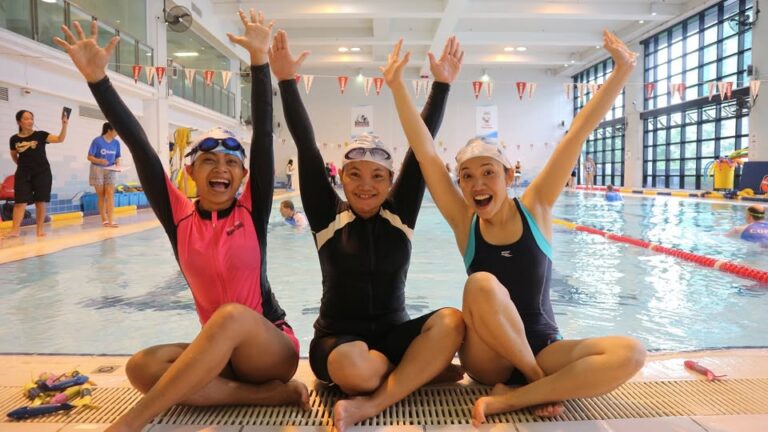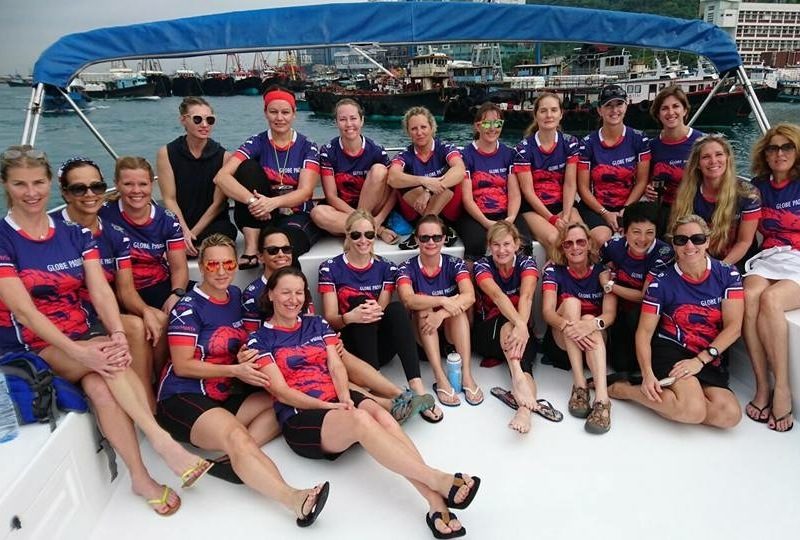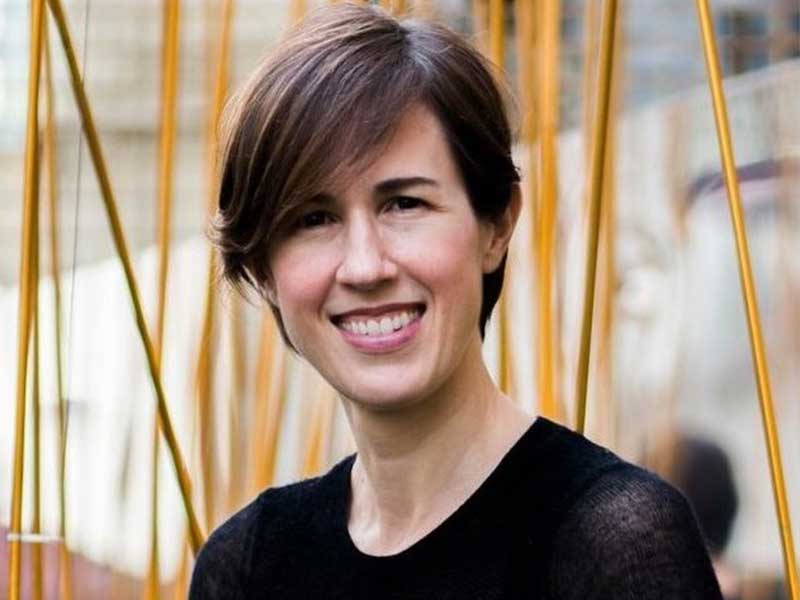Being comfortable in the water is something most of us take for granted. In Hong Kong it seems to be the norm for children to start taking swimming lessons near infancy! But the ability to swim is a first-world luxury. Many domestic helpers here do not know how to swim, are scared of the water, and yet are often expected to watch kids at the pool.
According to the World Health Organization, there are an estimated 372,000 annual drowning deaths worldwide. (The real number is believed to be 3 to 4 times higher as this statistic does not include many underdeveloped countries.) Low- and middle-income countries account for 91% of unintentional drowning deaths — and over half of the world’s drowning occurs in the Western Pacific Region and Southeast Asia Region.
Splash, an organization founded in 2014, by competitive open-water swimmer Simon Holliday, aims to change these harrowing statistics. Splash conducts swim and water safety courses for under-served communities, including domestic helpers, who may not have the access or means for swim lessons. Bringing together a network of over 50 experienced volunteer coaches in a supportive group setting, Splash provides an opportunity to learn an important life skill which develops confidence, improves well being and allows people to flourish both in and out of the water. By the end of 2016, Splash will have given over 500 people the opportunity to learn to swim and be water safe.
Hong Kong Mom and former competitive swimmer herself, Libby Alexander, saw her helper struggling with this issue and realized that there was a problem. Wanting to help, she started volunteering at Splash. Here, she speaks with Hong Kong Moms on the story behind this wonderful organization.
How did you get involved with Splash and why?
I started with Splash from the very beginning. Founder Simon Holliday, sent an email out to various swim groups with this idea and I thought it was fantastic and so desperately needed. The year before, I discovered my helper had been trying to learn to swim at night at the beach with her friends — this terrified me and made me realize there isn’t much on offer when I looked into for swim lessons for her. Additionally, some buildings are very restrictive about domestic helpers using the facilities so the opportunities are limited.
What motivates the volunteer coaches to give up their time for this cause?
Good question! I don’t think any of the coaches realized how much they would love this. I started out thinking it would be a nice chance to volunteer every so often. We were quickly overwhelmed with the enthusiasm and gratitude of the participants. Spending an afternoon with people that are so committed and engaged always puts me in a good mood. Also, the experience is so tangible and rewarding. We get to feel the nerves and fear at the first lesson followed by the confidence and pure joy at the graduation. It is transformational and I think we all feel very fortunate to be a part of it.
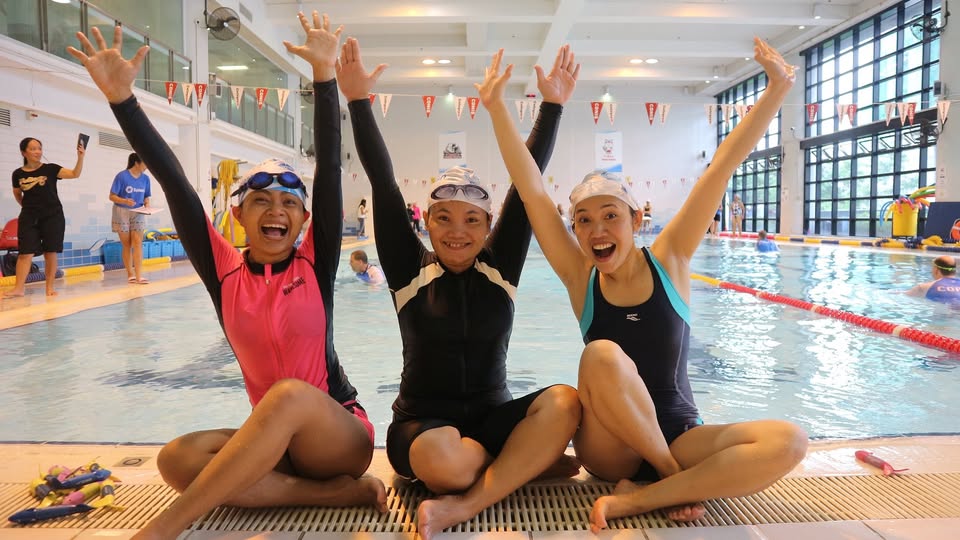
What is your estimate of how many domestic helpers are able to swim?
I’m really not certain on what that number might be, but anecdotally, it seems like the vast majority of foreign domestic workers are not able to swim. Even though most helpers come from island nations, it is not on the school curriculum in many countries/regions so most people don’t get the opportunity to learn when they are young. What I can tell you is we had 140 spots available in our beginner program in the fall and registration filled up in just 29 minutes. And there are approximately 300,000 foreign domestic workers in Hong Kong, so we’re not worried about demand anytime soon! The key now is to secure the funding and build our volunteer base to make this a sustainable program that will benefit many for years to come.
Have you seen domestic helpers in dangerous situations with or without children in their care?
Personally, no I haven’t. I think many are fearful of the water and act accordingly, particularly when they are caring for others. (To be honest, I’ve seen more parents making questionable decisions with their children around water!) When helpers are on their own or with their friends, we are mindful about the personal choices they make (especially once they gain a little bit of confidence and skill) but we make safety awareness a big part of the program. Know your limitations!
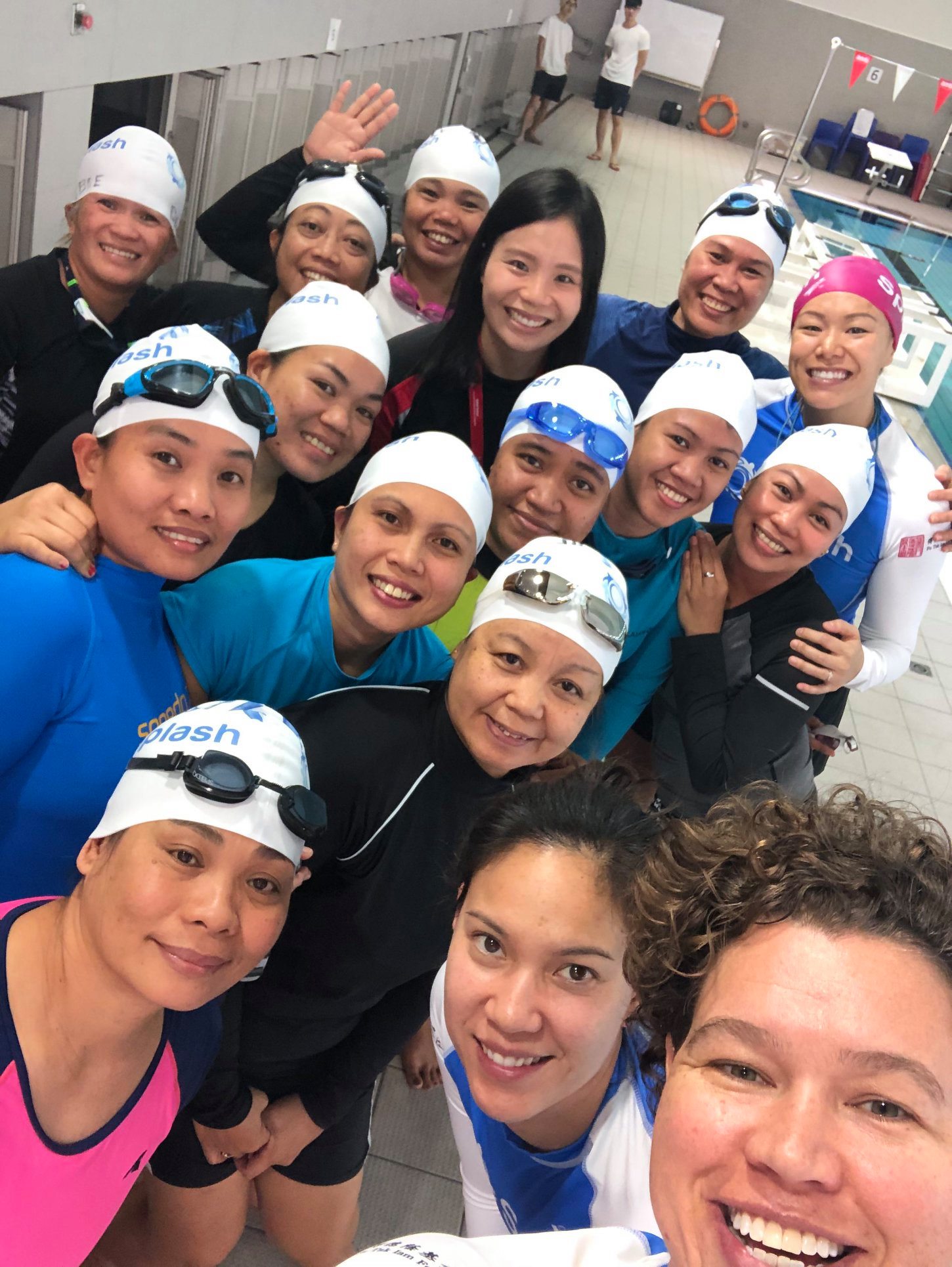
Is learning to swim something we take for granted?
Absolutely. I don’t think people realize that it is just not readily accessible in so many parts of the world. Even here in Hong Kong. Splash has also started programs for local underprivileged young people. In our first class of 8-9 year olds, I asked who had been in a pool or the sea before and only one raised their hand. Hong Kong has such amazing public pool facilities but in many districts, they are not being utilized or accessed as much as they should be.
Why is this such an important skill?
Knowing how to swim (or float) can save your life, full stop. And while that might be a rare instance which everyone hopes they will never have to face, there are so many other benefits of learning this skill that are immediate and real. Every time you have the opportunity to learn a new skill, particularly as an adult, it is stimulating. It builds confidence. As a life-long swimmer, I know I’m biased but swimming is an amazing sport that benefits the body and mind.
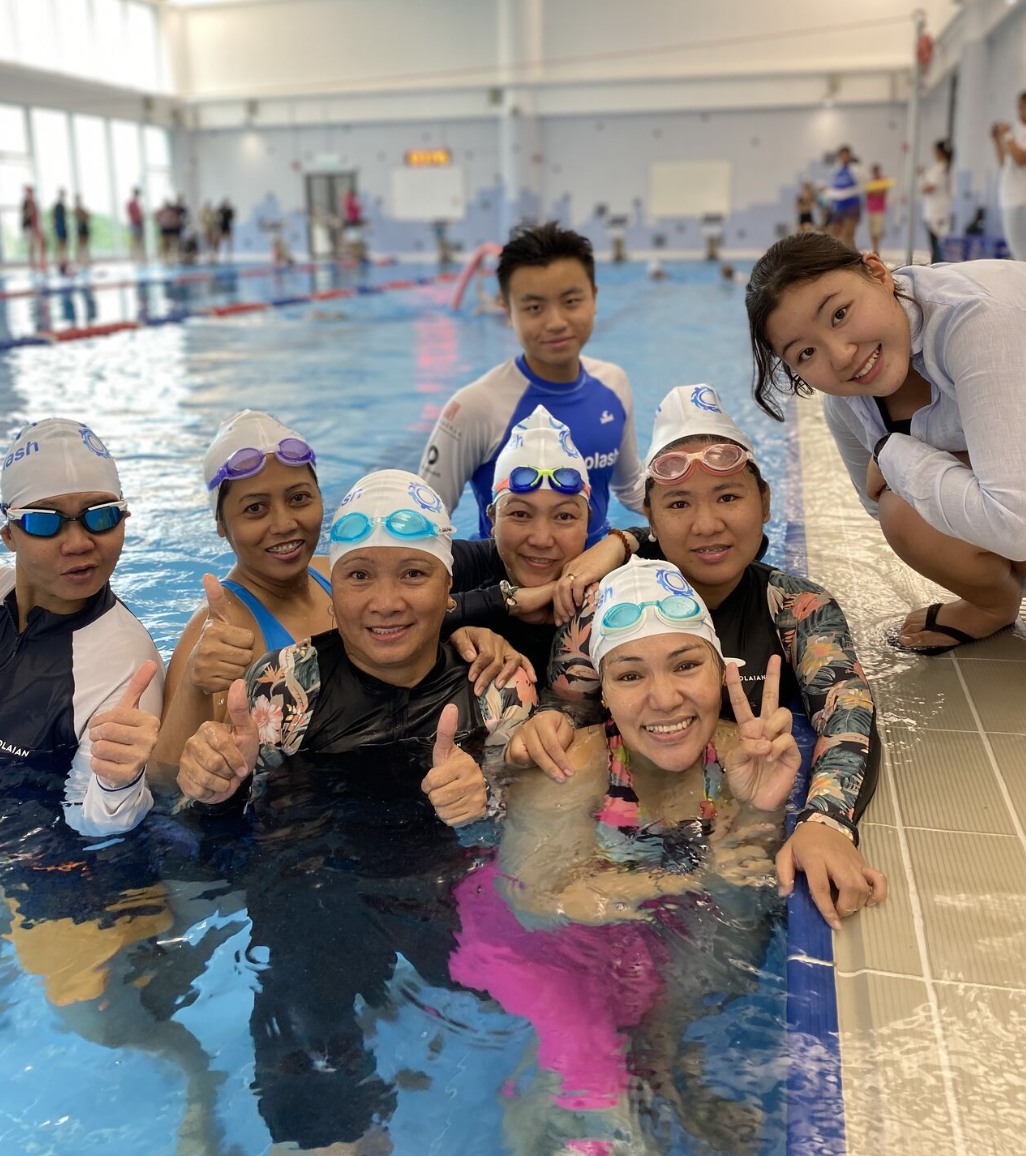
How do the women change after completing the program?
They are so incredibly proud of their accomplishments (as they should be). And I think they surprise themselves with what they are able to achieve. We forget that their life in Hong Kong is all about doing things for others. There are not many opportunities to do something for themselves. That being said, the reasons they join Splash vary: a personal desire to learn how to swim; feeling more confident watching the kids they look after around water; and also being able to teach their own kids back home.
Can you tell us the story of one or two of the women who have completed the program?
The best thing about Splash that I think all the coaches will tell you is that while it’s rewarding to sharing this life skill, the real secret to Splash’s success is the community. One helper told me that she didn’t leave her room on Sundays because she couldn’t stand the crowds. She felt quite depressed and lonely. She so looked forward to her Splash lessons as it was a reason to get out and a chance to meet people. Another describes her one day off being so much more meaningful now that she has Splash. Friends get together well after the program is over for celebrations, bbqs or swims. There are a handful of graduates who continue to help us run our beginner lessons every Sunday. We’ve had the pleasure of getting to know these women (and a few men) on a personal level and the friendships and bonds that Splash has inspired is what makes it special. As one recent graduate said, “Splash is building a family that gives us so much joy and laughter especially for us domestic helpers, knowing that we are miles away from our loved ones.”
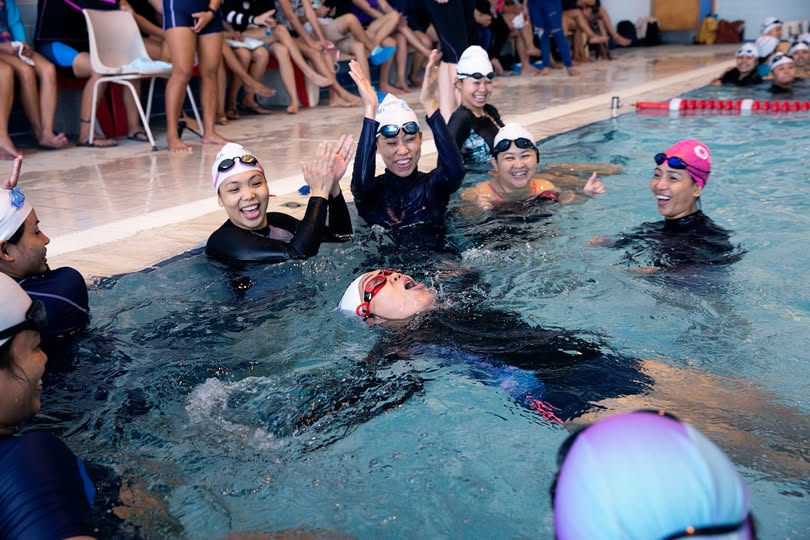
How can someone volunteer with Splash?
Funds! Whether through individual donations, grant opportunities or corporate sponsorships, we need to build our financial base so that we can expand our programs and make Splash sustainable.
Volunteers! Experience is not required but enthusiasm and a desire to create change is. We provide training to those who have a swimming background but have not coached before. Not a swimmer? We could still use your help — we’re always on the hunt for photographers, event planners, grant writers, designers, social media gurus, financial wizards, etc.
Awareness! Spread the word about Splash and what we do. Utilize your personal and professional networks to publicize our events and fundraisers. “Like” our Facebook page to keep current on our latest news.
When is the next session and how can I sign up my helper?
The next program will most likely run January 15th through April 9. Registration will open a couple weeks prior via a link on our Facebook page. We currently have classes at HKIS in Tai Tam and CIS in Braemar Hill. And yes, we are always looking for more coaches and volunteers and we will hold a formal coaches training the week before we start the next term.
For more information on Splash’s programs for foreign domestic workers and underprivileged youth, or how you can help, visit www.splashfoundation.org.

